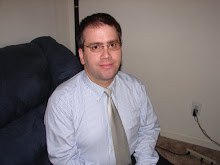Ecclesiastes 3:1-13; Psalm 8; Revelation 21:1-6a; Matthew 25:31-46
The readings this time deal in a very clear way with the passage of time. The Old Testament reading is significant for me because Ecclesiastes is one of my top three favorite books in the canon. If I had not written my doctoral dissertation on Jeremiah, than either Job or Ecclesiastes would have been in focus. I might have even investigated this somewhat depressing poem about there being a season for everything, and a time for every purpose under heaven. The entire book of Ecclesiastes is depressing, really, chasing after all sorts of things that are supposed to satisfy but in the end are found wanting. Ultimately Ecclesiastes does sound a kind of positive note, with a theological twist, but it is a kind of resignation, an ultimate casting of everything upon the will of a generally inscrutable God. This is typical of later Hebrew thinking in antiquity, leading a scholar such as Jack Miles to wonder if God loses interest.
But then this is balanced with Psalm 8, a hymn that shows all of humanity, all of creation, in praise of Yahweh as the sovereign, whose name is majestic over all the earth. Whereas Ecclesiastes 3 suggests that the ultimate good of humankind is, essentially, to eat, drink, and be merry, for tomorrow you die, Psalm 8 says that Yahweh has taken such great regard for humanity as to make them just a little lower than the gods. True enough, this reflects a much earlier form of Hebrew religion than Ecclesiastes, and it is much closer to the polytheistic environment in which Israel came to be, but the contrast is illuminating nonetheless.
When I saw that Ecclesiastes 3 was paired with Psalm 8, I immediately saw Tom Hanks' character in Cast Away, which is in itself a pun. Twice in the movie, once before his ordeal and once after, Chuck Noland (=No Land, =Homeless) says that "We must not commit the sin of turning our backs on time." Time is important, and transitons in time are important, for even though, as Ecclesiastes says, there is nothing new under the sun, we do long for the time when the new heaven and the new earth come, and the Son of Man sets up his judgment throne, as said by the passages from Revelation and Matthew, respectively. The hope of the final judgment is not, as Nietzsche says, the product of an unrequited sense of vengeance, but a genuine trust in God that things will come to the conclusion that he intends. Even if the world has gotten off the track, indeed as far back as the first couple, whenever that was or if they even existed, but mistakes by humans do not ultimately thwart the plan of God. This is what our confession of faith means when we say that Christ was destined before the foundation of the world--in the time before time began--to be the redeeming sacrifice. The death and resurrection of Jesus was not "Plan B," was not God returning to the drawing board and ginning up some new plans after the humans messed everything up.
Chuck No Land is much more thoughtful the second time he says that we should not commit the sin of turning our backs on time. No moments can be relived, except in the furtive experiences of memory. This can lead us to an ultimate resigned depression, as with Ecclesiastes. It can also lead us to a sure and certain hope that God will wipe away every tear, as with Revelation. Enjoying ourselves and our days as long as we live, taking care to take care for others, giving praise to Yahweh, following Jesus Christ--these are the things that make for new life under the sun. And under the Son. Amen.
Subscribe to:
Post Comments (Atom)




No comments:
Post a Comment